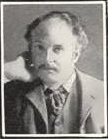Members of Parliament
This is a list of people who have been elected to represent this university in the Parliament of the United Kingdom.
1603 to 1660
- Constituency created 1603
| Year | First member | Second member |
|---|---|---|
| 1604 | Nicholas Steward | Henry Mountlow |
| 1614 | Sir Miles Sandys | Sir Francis Bacon |
| 1621 | Robert Naunton | Barnaby Gough |
| 1624 | Sir Robert Naunton | Barnaby Gough |
| 1625 | Sir Robert Naunton | Sir Albert Morton |
| 1626 | Thomas Eden | Sir John Coke |
| 1628–1629 | Thomas Eden | Sir John Coke |
| 1629–1640 | No Parliaments summoned | |
| Apr 1640 | Thomas Eden | Henry Lucas |
| Nov 1640 | Thomas Eden | Henry Lucas |
| Eden died 1644 replaced by Nathaniel Bacon | ||
| 1648 | Lucas secluded in Pride's Purge | |
| 1654 | Henry Cromwell | (one seat only) |
| 1656 | Richard Cromwell | (one seat only) |
| 1659 | John Thurloe | Thomas Sclater |
1660 to 1784
| Year | Member | Party | Member | Party |
|---|---|---|---|---|
| 1660 Apr | George Monck | Thomas Crouch | ||
| 1660 Jun | William Montagu | |||
| 1661 | Sir Richard Fanshawe | |||
| 1667 | Sir Charles Wheler, 2nd Baronet | |||
| 1679 | Sir Thomas Exton | James Vernon | ||
| 1681 | Robert Brady | |||
| 1689 | Sir Robert Sawyer | Isaac Newton | Whig | |
| 1690 | Edward Finch | |||
| 1692 | Henry Boyle | Whig | ||
| 1695 | George Oxenden | |||
| 1698 | Anthony Hammond | |||
| 1701 | Isaac Newton | Court Whig | ||
| 1702 | Arthur Annesley | Tory | ||
| 1705 | Dixie Windsor | Tory | ||
| 1710 | Thomas Paske | Tory | ||
| 1720 | Thomas Willoughby | Tory | ||
| 1727 | Edward Finch | Whig | Thomas Townshend | Whig |
| 1768 | Charles Yorke | Rockingham Whig | ||
| 1770 | William de Grey | |||
| 1771 | Richard Croftes | |||
| 1774 | Charles Manners, Marquess of Granby | |||
| 1779 | James Mansfield | |||
| 1780 | Lord John Townshend | Whig | ||
1784 to 1950
Notes:-
- 1 Pitt called himself a Whig, but is usually retrospectively regarded as a Tory since most of his followers (whether their background was in the Whig or Tory tradition) came to call themselves the Tory Party in the decade after Pitt's death.
- 2 Jebb died on 10 December 1905 – seat vacant at dissolution.
- 3 Co. is an abbreviation for Coalition.
- 4 Ind. is an abbreviation for Independent.
- 5 Sir Geoffrey G. Butler died on 2 May 1929 – seat vacant at dissolution.



